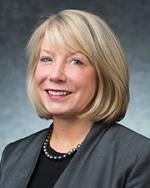On Friday, July 22, President Obama signed the Comprehensive Addiction and Recovery Act of 2016 (CARA). Following on federal, state and local trends, CARA seeks to expand access for persons needing opioid treatment.
One of CARA’s more significant provisions expands buprenorphine prescribing privileges to nurse practitioners and physician assistants who meet certain specified education and training requirements to prescribe to treat opiate addiction. Currently, buprenorphine may be prescribed, administered or dispensed for addiction treatment only by a practitioner who meets the definition of a “qualifying physician” as set forth in the Controlled Substances Act and who has applied for and obtained from the Drug Enforcement Administration (DEA) a waiver with an assigned unique identification number (X-waiver).
CARA requires that the US Department of Health and Human Services (HHS) update regulations regarding buprenorphine prescribers within 18 months from the date of its enactment to include nurse practitioners and physician assistants.
The statutory expansion of buprenorphine prescribing limits follows on a significant regulatory expansion announced earlier this month. On July 8, 2016, the Obama administration announced new rules that substantially increased the number of patients that a given practitioner may treat with buprenorphine at any one time. The rules take effect on August 8, 2016, and expand the number of patients that a practitioner may treat from 100 to 275.
HHS, which issued the rules, noted that the policy rationale is a desire to expand access to Medication Assisted Treatment (MAT) for opiate addiction, thereby addressing a pressing public health problem:
Evidence suggests that utilization of buprenorphine is limited directly by the existence of treatment limits. Practitioners currently providing MAT with buprenorphine [] report that being limited to treating not more than 100 patients at a time is a barrier to expanding treatment. (81 FR 44729)
HHS’s revised rules reflect a continued dedication to the concept of limiting buprenorphine prescribing to practitioners who have met specific training requirements, who prescribe for the purpose of MAT, and who meet other “good standing” requirements with regard to the DEA and the Centers for Medicare and Medicaid Services. As with previous waiver expansions, the move from a limit of 100 to 275 is a “graduated” process. A practitioner may apply for the 275 waiver one year after receiving approval to treat 100 patients.
The application to move to 275 patients will require practitioners to certify that they meet a number of requirements, including that they will (1) adhere to nationally recognized evidence-based guidelines for the treatment of patients with opioid use disorders; (2) provide patients with necessary behavioral health services; (3) use patient data to inform the improvement of outcomes; (4) adhere to a diversion control plan; (5) consider how to ensure continuous access to care in the event of practitioner incapacity or an emergency situation that would affect a patient’s access to care; and (6) in the event that the request for the higher patient limit is not renewed or the renewal request is denied, notify all patients above the 100 patient level that the practitioner will no longer be able to provide MAT services using buprenorphine to them and make every effort to transfer patients to other addiction treatment.
HHS acknowledged that it received many comments urging that nurse practitioners and/or physician assistants have a role in prescribing buprenorphine, but noted that prior to CARA it did not have statutory authority to extend buprenorphine prescribing privileges to allied health professionals.
With the statutory authority provided by CARA, HHS will extend the prescribing authority to allied health professionals within 18 months. CARA calls for HHS to determine additional parameters of training, experience and other qualifications that allied health professionals must meet in order to obtain such authority.




 />i
/>i

